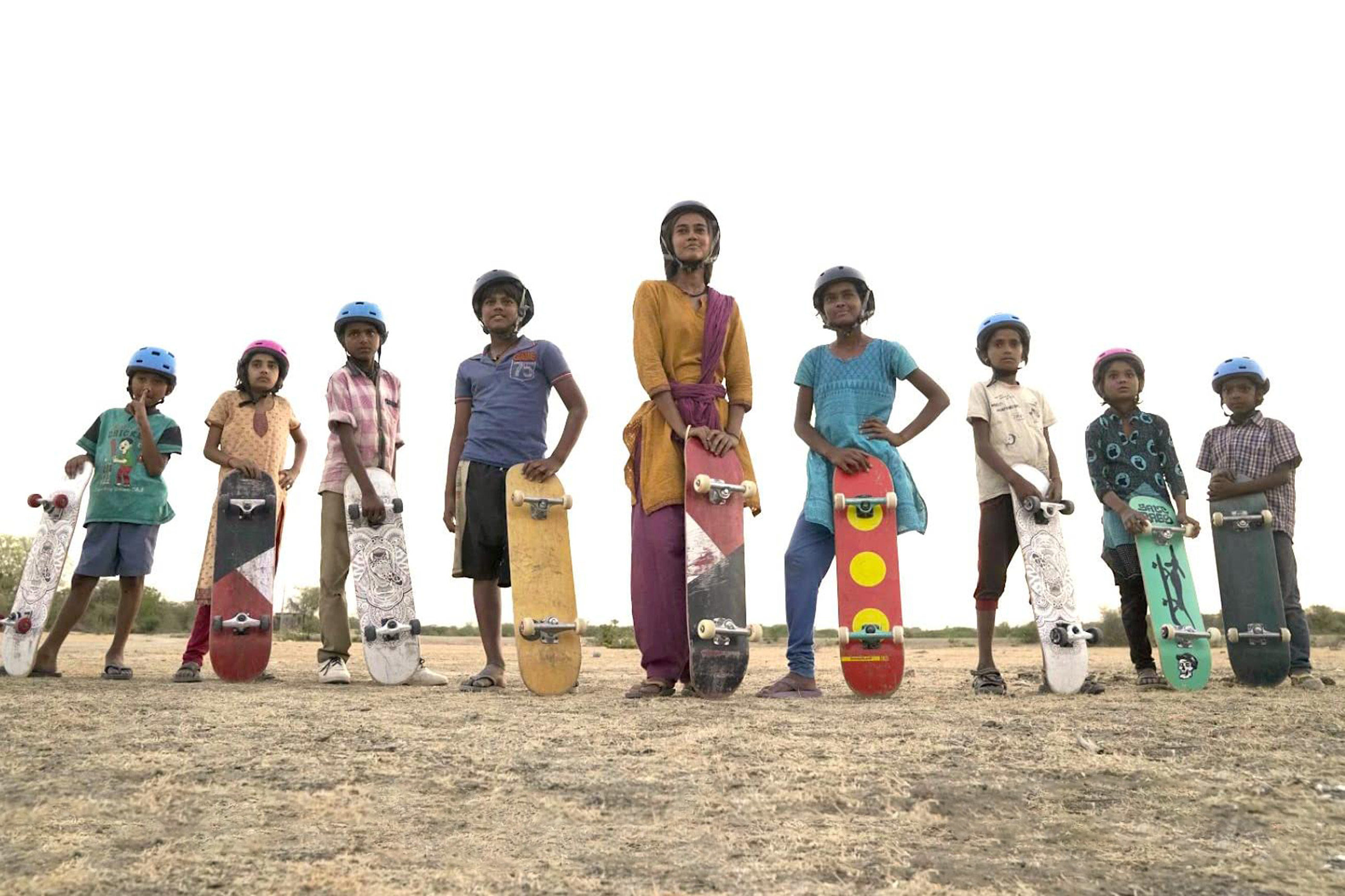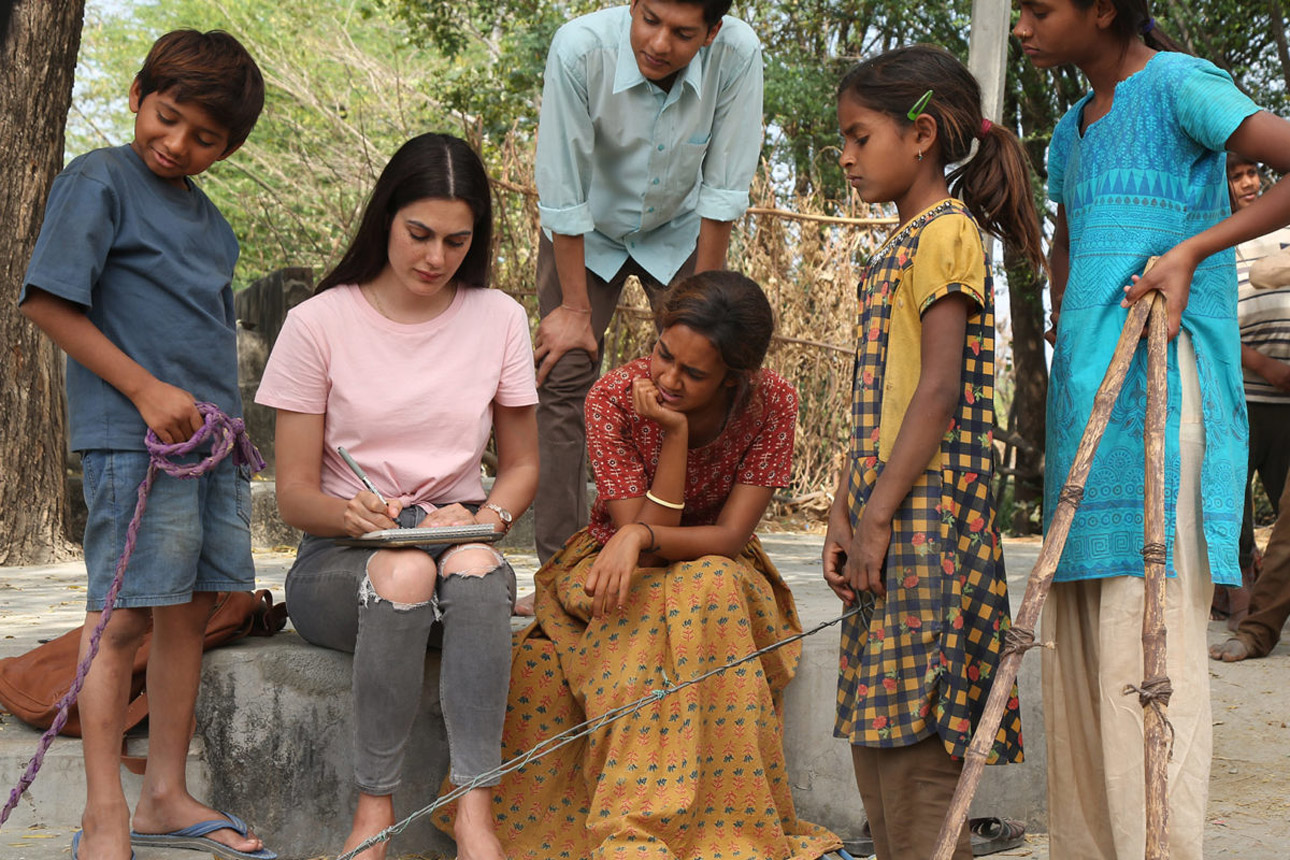A review of the new Netflix film Skater Girl


Our favorite movie buff is back with another review, this time taking a closer look at the new Skater Girl film on Netflix. Here’s what Linnea Bullion thought of India’s first narrative feature on skateboarding…
As a 30-year-old woman, I am not the target demographic for Netflix’s new film, Skater Girl. I suspect that the film is aimed at non-skateboarding (but skate-curious) girls, or those just starting out. In that regard, I can’t fault it. We need more films starring young women, written by women. It can’t be said enough: representation matters (I, for one, idolized Jurassic Park’s badass paleobotanist Dr. Ellie Sapler as a child, and still do to this day. And while I am not a paleobotanist, I loved knowing I could become one).
“Aside from more than a few eye-rolling moments centered on Jessica and Erick, Prerna and Ankush are a joy to watch.”
Skater Girl follows Prerna, a teenage girl in rural India. She mournfully watches the other students attend school, stuck behind because her family can’t afford textbooks or a uniform. One day, a Londoner named Jessica arrives in the village and sees Prerna and her brother pulling around a makeshift skateboard. She posts a video of the children playing, which inspires her friend Erick to travel to the village with his own, proper, board. From there, the children of the village are gradually pulled into skating’s orbit as Jessica and Erick order boxes of product and orchestrate the construction of a cement skatepark for the village. Prerna falls in love with skateboarding, against her parent’s wishes. She’s supposed to get married, keep house. Not skateboard.
The movie touches upon weighty topics like India’s modern caste system, and breaking away from traditional gender roles in order to find strength in oneself. It is heavy-handed in its approach, opting to tell vs. show — or rather, show, and then tell and tell and tell — which feels clunky. But the leads Prerna (Rachel Saanchita Gupta) and her brother Ankush (Shafin Patel) are so charming that it’s hard not to be drawn to them, even if you know exactly where the story is headed. Both light up the screen, and I must admit, I 100% teared up watching Prerna’s character push against society’s expectations. The same cannot be said for the two supporting characters, Jessica (Amy Maghera) and Erick (Jonathan Readwin). Such care is put into Prerna’s storyline that anytime the film centers on Jessica I kept reaching for my phone. She simply isn’t as engrossing as Prerna, and her character isn’t nearly as likable. It felt like they wrote Prerna’s story, realized it was thirty minutes too short, and added Jessica’s backstory as padding. I imagine that you could tell me most of what will happen just by watching the trailer. With that being said, not every movie has to be completely novel. This is a feel-good film, and it’s successful at that. Maybe it doesn’t need to be anything more. Aside from more than a few eye-rolling moments centered on Jessica and Erick, Prerna and Ankush are a joy to watch.
Perhaps most interesting is what’s going on behind the scenes. Although writer/director Manjari Makijany and her co-writer and sister Vinati Makijany explicitly say otherwise, the movie is clearly based upon skateboarder Asha Gond’s life, and German activist Ulrike Reinhard. Reinhard has lived in India for years, and built a skatepark in Janwar, another rural Indian village. At one point, Reinhard was consulting on the film before leaving due to creative differences. As for Gond, she was asked to make an appearance at the end of the film during the climactic contest scene, but declined. “We said if this is our story we want to be seen and tell our story. We don’t want to be only in the background of the last scene,” she told NPR. I can’t fault her for that. It is strange that a film centered around uplifting women decided to deny credit to those whose stories clearly inspired the film, if not motivated it directly. In one glaring example, Jessica puts up a sign declaring “No School, No Skateboarding,” a line plucked directly from Reinhard’s skatepark in Janwar.

I take some issue with the writers’ decisions to skimp crediting Gond. But I also don’t know the whole story, nor do I know enough about India’s skating scene to tell how many girls have had their lives changed because of it. Reinhard isn’t the only foreigner to facilitate the construction of skateparks in India — others have been built by organizations like Girl Skate India, and Make Life Skate Life, for example. And the production of Skater Girl led to the construction of Desert Dolphin Skatepark. They built the skatepark for the film and left it as a free public park for the locals. There is nuance to every story that often gets left out when we only look at things from one direction.
“It is strange that a film centered around uplifting women decided to deny credit to those whose stories clearly inspired the film, if not motivated it directly.”
If you already love skateboarding, I’m not sure you need to watch this. Or rather, it won’t tell you anything you don’t already know about skating. But this movie will be a great way for those who are stuck thinking of skateboarding as a stereotype, rather than a passion, see it in a new light. After all, isn’t that what we all want?
Text: Linnea Bullion
Lisa Jacob has been building skateparks all over the globe, from Mozambique to Iraq, and just about every country in…
As a photographer, Linnea Bullion has spent the past nine years documenting skateboarding from behind the lens. She also majored…
Connecting with people around the world is surprisingly easy when you’re a part of the tightly woven web of women’s…